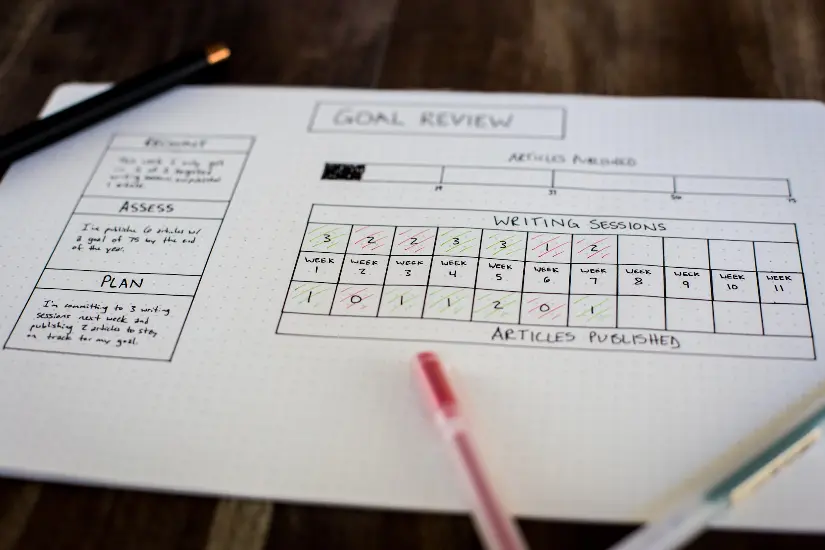Project Planning & Execution

1. Define Objectives and Scope:
- Collaboratively outline the specific objectives, goals, and scope of the Al Jabal Alrafee project.
2. Stakeholder Identification and Analysis:
- Identify and analyze all stakeholders to understand their expectations, interests, and potential impact on the project.
3. Create a Project Plan:
- Develop a detailed project plan outlining tasks, timelines, resources, and dependencies, utilizing industry-leading project management methodologies.
4. Resource Planning:
- Identify, allocate, and manage the necessary resources (human, financial, technological) required for the Al Jabal Alrafee project.
5. Risk Management:
- Conduct a thorough risk assessment and develop strategies for risk mitigation, ensuring proactive management of potential challenges.
6. Communication Plan:
- Establish a robust communication plan to keep stakeholders informed throughout the project lifecycle, ensuring transparency and alignment.
7. Quality Management:
- Establish and enforce quality standards and procedures to guarantee the delivery of high-quality project outcomes.
8. Team Mobilization:
- Assemble a dedicated project team with the requisite skills and expertise, ensuring effective collaboration and communication.
9. Task Execution:
- Implement tasks according to the meticulously crafted project plan, with continuous monitoring and adjustments as necessary.
10. Communication and Reporting:
- Regularly update stakeholders on project status, providing detailed reports on progress, challenges, and proposed solutions.
11. Issue Resolution:
- Swiftly address and resolve any issues or conflicts that may arise during the project, maintaining project momentum.
12. Change Management:
- Manage changes to project scope, schedule, or resources, communicating effectively and assessing impact.
13. Quality Assurance:
- Conduct regular quality checks to ensure that deliverables meet the defined standards, making necessary adjustments for continuous improvement.
14. Post-Implementation Review:
- Analyze overall project performance through a comprehensive post-implementation review, documenting lessons learned and areas for improvement.
15. Feedback Mechanism:
- Seek and incorporate feedback from team members, stakeholders, and clients, promoting a culture of continuous improvement.
16. Knowledge Transfer:
- Share insights and best practices within the organization, contributing to the enhancement of future projects.
Risk Management

At Al Jabal Alrafee, we understand that effective risk management is the cornerstone of successful project delivery. Our approach to risk management is a dynamic and proactive process that encompasses the entire project lifecycle, ensuring that potential challenges are identified, assessed, and mitigated in a timely manner.
1. Comprehensive Risk Assessment:
Before the project even kicks off, our expert team conducts a comprehensive risk assessment. We work closely with stakeholders to identify potential risks, uncertainties, and external factors that could impact project objectives. This initial assessment serves as the foundation for our risk management strategy.
2. Risk Mitigation Strategies:
Once risks are identified, we develop tailored mitigation strategies. These strategies are designed to address each specific risk, outlining proactive measures to either minimize the likelihood of occurrence or reduce the impact if the risk materializes. Our goal is to create a robust risk response plan that safeguards the project's success.
3. Continuous Monitoring:
Risk management at Al Jabal Alrafee is not a one-time activity. We implement continuous monitoring throughout the project lifecycle. Our team remains vigilant, regularly reviewing and reassessing potential risks as project dynamics evolve. This ensures that new risks are identified and managed promptly.
4. Communication and Transparency:
Effective communication is integral to our risk management process. We maintain open channels of communication with all stakeholders, keeping them informed about identified risks, mitigation strategies, and the overall risk landscape. Transparent communication fosters a collaborative environment and enables quick decision-making in response to emerging risks.
5. Scenario Planning:
In addition to traditional risk management, we employ scenario planning. This involves simulating potential risk scenarios to evaluate their impact and test the effectiveness of mitigation strategies. By considering various scenarios, we enhance our ability to adapt to unexpected challenges, ensuring resilience in the face of uncertainties.
6. Lessons Learned and Continuous Improvement:
Post-project, we conduct a thorough review of the effectiveness of our risk management strategies. By analyzing what worked well and areas for improvement, we extract valuable lessons learned. These insights contribute to our continuous improvement process, informing future risk management strategies and enhancing the overall effectiveness of our services.
At Al Jabal Alrafee, our commitment to proactive, transparent, and adaptive risk management sets us apart. We believe that a well-managed risk is not just a potential problem averted but an opportunity seized for the success of your project. Partner with us, and let's navigate the path to success together.
Stakeholder Communication

Understanding Stakeholder Needs: At Al Jabal Alrafee, we recognize that effective communication is the cornerstone of successful project management. We begin by conducting a thorough analysis to understand the unique needs and expectations of each stakeholder involved in the project. This involves identifying key decision-makers, influencers, and contributors.
Tailored Communication Plans
Based on our understanding of stakeholder needs, we develop tailored communication plans for each project. These plans outline the frequency, format, and content of communications to ensure that stakeholders are well-informed at every stage. Whether it's project updates, milestones achieved, or addressing concerns, our communication plans are designed to maintain transparency and alignment with project objectives.
Open and Transparent Channels
We prioritize open and transparent channels of communication. Regular project status meetings, progress reports, and milestone reviews are conducted to keep stakeholders informed about project developments. Additionally, we leverage various communication tools and platforms to facilitate seamless interaction, allowing stakeholders to provide feedback and ask questions in real-time.
Proactive Issue Resolution
Our Stakeholder Communication service goes beyond mere reporting; we actively seek feedback and input from stakeholders. This proactive approach allows us to identify potential issues or concerns early in the project lifecycle. Timely resolution of issues ensures that the project stays on course, minimizing disruptions and enhancing stakeholder satisfaction.
Customized Reporting
We understand that different stakeholders may have varying preferences when it comes to project updates. Therefore, we offer customized reporting formats to cater to the specific needs of each stakeholder group. Whether it's detailed reports, visual presentations, or concise summaries, our goal is to provide information in a way that is easily digestible and relevant to each audience.
Feedback Mechanisms
To foster a collaborative environment, we establish clear feedback mechanisms. This includes regular check-ins, surveys, and forums for stakeholders to express their opinions and suggestions. By actively seeking feedback, we demonstrate our commitment to continuous improvement and responsiveness to stakeholder input.
Emergency Communication Protocols
In the event of unexpected challenges or changes in project status, we have established emergency communication protocols. These protocols ensure that stakeholders are promptly informed of any critical developments, allowing for swift decision-making and coordinated responses.
Building Long-Term Relationships
Our approach to Stakeholder Communication is not just about project-specific interactions; it's about building long-term relationships. We aim to create an atmosphere of trust and collaboration, positioning Al Jabal Alrafee as a reliable partner for future endeavors.
At Al Jabal Alrafee, Stakeholder Communication is not just a service; it's a commitment to keeping all stakeholders engaged, informed, and satisfied throughout the entire project lifecycle.
Quality Assurance

Understanding Stakeholder Needs: At Al Jabal Alrafee, we recognize that effective communication is the cornerstone of successful project management. We begin by conducting a thorough analysis to understand the unique needs and expectations of each stakeholder involved in the project. This involves identifying key decision-makers, influencers, and contributors.
Tailored Communication Plans
Based on our understanding of stakeholder needs, we develop tailored communication plans for each project. These plans outline the frequency, format, and content of communications to ensure that stakeholders are well-informed at every stage. Whether it's project updates, milestones achieved, or addressing concerns, our communication plans are designed to maintain transparency and alignment with project objectives.
Open and Transparent Channels
We prioritize open and transparent channels of communication. Regular project status meetings, progress reports, and milestone reviews are conducted to keep stakeholders informed about project developments. Additionally, we leverage various communication tools and platforms to facilitate seamless interaction, allowing stakeholders to provide feedback and ask questions in real-time.
Proactive Issue Resolution
Our Stakeholder Communication service goes beyond mere reporting; we actively seek feedback and input from stakeholders. This proactive approach allows us to identify potential issues or concerns early in the project lifecycle. Timely resolution of issues ensures that the project stays on course, minimizing disruptions and enhancing stakeholder satisfaction.
Customized Reporting
We understand that different stakeholders may have varying preferences when it comes to project updates. Therefore, we offer customized reporting formats to cater to the specific needs of each stakeholder group. Whether it's detailed reports, visual presentations, or concise summaries, our goal is to provide information in a way that is easily digestible and relevant to each audience.
Feedback Mechanisms
To foster a collaborative environment, we establish clear feedback mechanisms. This includes regular check-ins, surveys, and forums for stakeholders to express their opinions and suggestions. By actively seeking feedback, we demonstrate our commitment to continuous improvement and responsiveness to stakeholder input.
Emergency Communication Protocols
In the event of unexpected challenges or changes in project status, we have established emergency communication protocols. These protocols ensure that stakeholders are promptly informed of any critical developments, allowing for swift decision-making and coordinated responses.
Building Long-Term Relationships
Our approach to Stakeholder Communication is not just about project-specific interactions; it's about building long-term relationships. We aim to create an atmosphere of trust and collaboration, positioning Al Jabal Alrafee as a reliable partner for future endeavors.
At Al Jabal Alrafee, Stakeholder Communication is not just a service; it's a commitment to keeping all stakeholders engaged, informed, and satisfied throughout the entire project lifecycle.
Post-Project Evaluation

At Al Jabal Alrafee, our Post-Project Evaluation service is a meticulous process designed to extract valuable insights, learning experiences, and performance metrics from completed projects. We believe that a thorough evaluation is not just a conclusion to a project; it's a catalyst for continuous improvement and future success.
1. Comprehensive Data Collection:
- We start by collecting a comprehensive set of data, including project timelines, budget details, key performance indicators, and stakeholder feedback.
- Interviews with project team members, stakeholders, and clients are conducted to gather qualitative insights into the project's execution and outcomes.
2. Performance Analysis:
- Our team analyzes the collected data to assess the project's performance against predefined goals and benchmarks.
- We evaluate factors such as project efficiency, resource utilization, risk management effectiveness, and overall adherence to quality standards.
3. Identifying Successes and Challenges:
- We identify and celebrate project successes to acknowledge achievements and highlight strategies that worked well.
- Challenges and areas for improvement are meticulously documented, providing a roadmap for enhancing processes and overcoming future obstacles.
4. Client Debriefing:
- A crucial aspect of our evaluation process involves debriefing with clients to gather their perspectives on the project's success, challenges faced, and their overall satisfaction.
- This client-centric approach allows us to align future projects more closely with client expectations.
5. Lessons Learned:
- Through a collaborative discussion with the project team, we extract "lessons learned" from both positive and challenging aspects of the project.
- These lessons are documented and shared internally, fostering a culture of continuous learning and improvement.
6. Actionable Recommendations:
- Our Post-Project Evaluation doesn't stop at analysis; we provide actionable recommendations for improvement based on the identified lessons learned.
- These recommendations may include process refinements, training initiatives, or strategic adjustments to enhance future project outcomes.
7. Knowledge Sharing:
- Insights gained from the evaluation process are disseminated within the organization to share knowledge and promote cross-project learning.
- This knowledge-sharing approach contributes to the professional development of our team and strengthens our collective expertise.
By embracing a holistic and collaborative approach to Post-Project Evaluation, Al Jabal Alrafee is committed to not only delivering successful projects but also continually evolving and refining our project management practices for the benefit of our clients and the organization as a whole.
Document Control and Management

At Al Jabal Alrafee, we understand that effective Document Control and Management is integral to the success of any project. Our approach goes beyond simple file organization; it's a comprehensive system designed to enhance collaboration, maintain compliance, and mitigate risks associated with documentation errors.
1. Centralized Repository:
- We establish a centralized repository for all project-related documents, accessible to authorized team members.
- Categorization and folder structures are thoughtfully organized, ensuring easy navigation and retrieval.
2. Version Control:
- Every document undergoes a strict version control process, preventing confusion over the latest updates.
- Changes are tracked systematically, allowing for a clear audit trail.
3. Access Controls:
- Security and confidentiality are paramount. Access controls are implemented to ensure that sensitive documents are only accessible to authorized personnel.
- Collaboration is facilitated by providing the right level of access to the appropriate team members.
4. Real-time Collaboration:
- Our Document Control and Management system promotes real-time collaboration. Team members can simultaneously work on documents, fostering efficiency and reducing delays.
- Comments and annotations facilitate communication and streamline decision-making processes.
5. Compliance Assurance:
- We prioritize regulatory compliance by implementing industry-standard document control practices.
- Regular audits and assessments are conducted to ensure that our systems align with relevant regulations and standards.
6. Training and Support:
- To maximize the effectiveness of our Document Control and Management service, we provide training sessions for your team on the proper use of our systems.
- Ongoing support is offered to address any questions or concerns related to document management.
7. Continuous Improvement:
- We believe in continuous improvement. Regular evaluations of our document control processes are conducted, and feedback from project teams is utilized to enhance our services continually.
- Updates to our systems and procedures are implemented to reflect the latest advancements in document management technology and best practices.
By choosing Al Jabal Alrafee for Document Control and Management, you can be confident that your project documentation is in expert hands. Our meticulous approach ensures that your team can focus on project delivery while having seamless access to accurate and up-to-date information.
